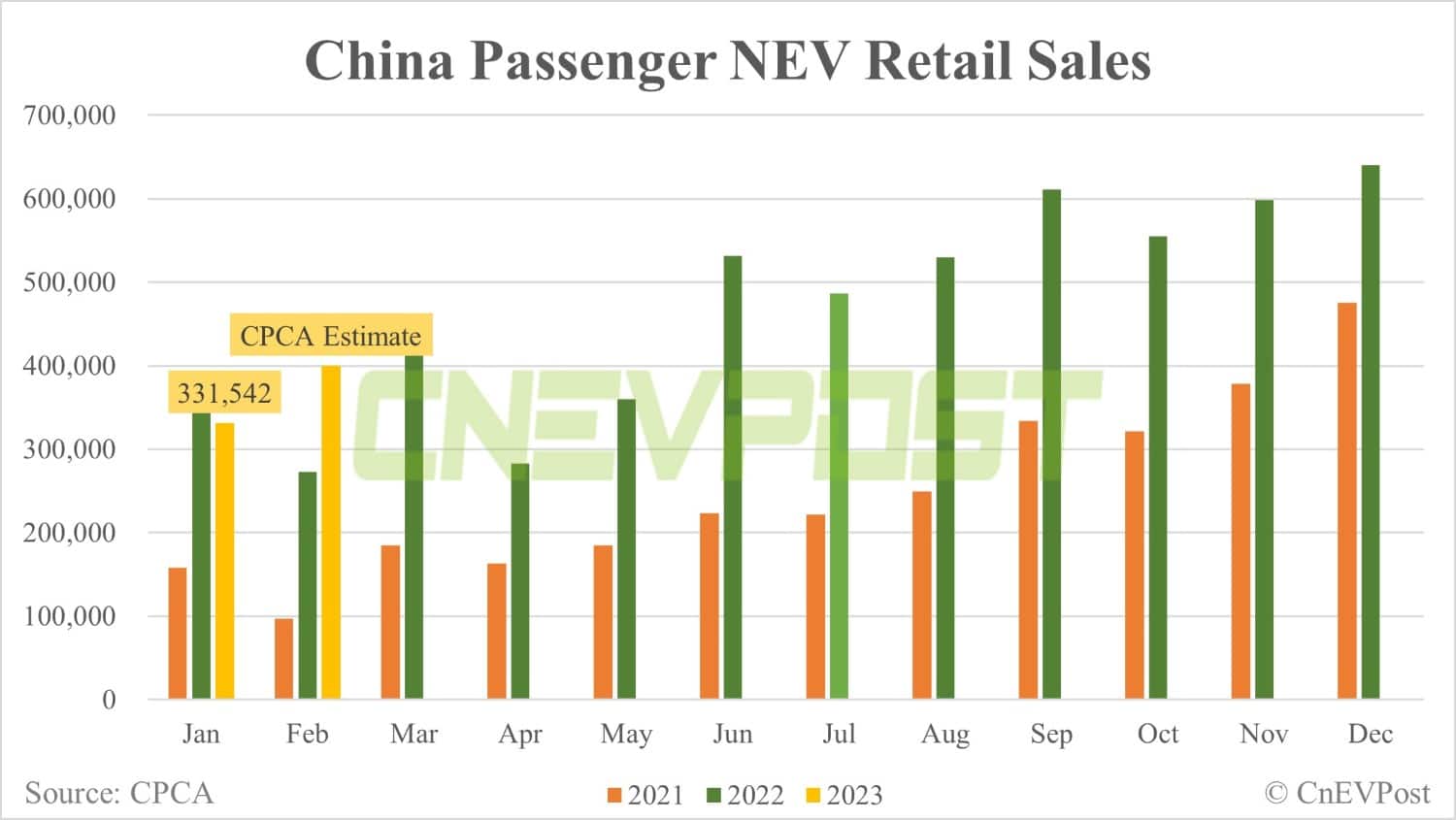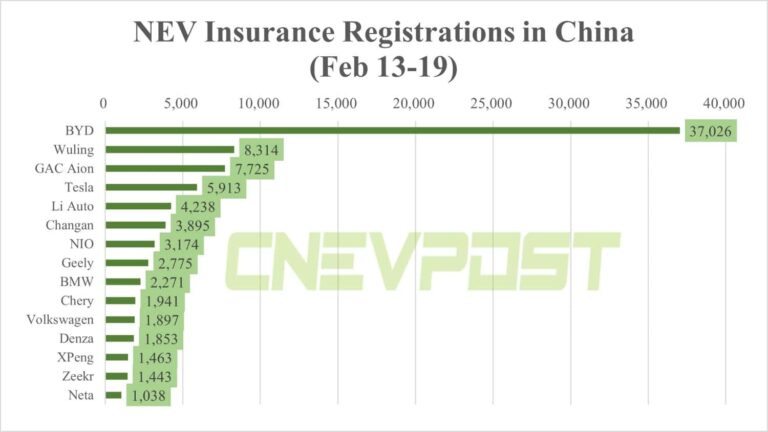Retail sales of new energy passenger vehicles in China are expected to be around 400,000 units in February, with a penetration rate of 29.6 percent, according to preliminary estimates by the CPCA.
The China Passenger Car Association (CPCA) expects China's new energy vehicle (NEV) sales to increase 20 percent this month compared to January, as the seasonal impact of the Chinese New Year holiday subsides.
Retail sales of new energy passenger vehicles in China are expected to be around 400,000 units in February, up 20.3 percent from January and up 46.6 percent year-on-year, according to preliminary estimates released yesterday by the CPCA.
This month's survey shows that automakers that contribute about 80 percent of China's auto sales are targeting a slight increase in retail sales in February compared with January, the CPCA said.
According to preliminary projections, February retail sales of passenger cars in China were around 1.35 million units, up 4.3 percent from January and up 7.2 percent year-on-year, the CPCA report said.
This means that the penetration rate of new energy passenger vehicles was 29.6 percent in February, up 3.9 percentage points from 25.7 percent in January.
It is worth noting that the figures released by the CPCA are preliminary estimates and may be subject to adjustment before the final data are released.
Retail sales of new energy passenger vehicles in China were 332,000 units in January, down 6.3 percent year-on-year and down 48.3 percent from 640,000 units in December, according to data released by the CPCA earlier this month.
Retail sales of all passenger vehicles in China totaled 1.29 million units in January, down 37.9 percent year-on-year and down 40.4 percent from 2.17 million units in December.
The Chinese car market was negatively impacted by short-term factors including the final wave from the Covid infection and the early timing of the Chinese New Year holiday in January, which was weaker than normal seasonal performance, the CPCA said in the report yesterday.
For the NEV market, the withdrawal of state subsidies and significant price adjustments by some leading EV manufacturers have led to some wait-and-see sentiment among consumers, according to the report.
After the Chinese New Year holiday, the work and life of Chinese residents are gradually returning to normal, with the car market in a mild recovery phase in the early February, followed by a gradual move to normalcy across the market, the CPCA said. The Chinese New Year holiday just passed was from January 21 to 27.
The overall discount rate in China's passenger car market was about 13.8 percent in mid-February, largely in line with January's 13.7 percent, with prices relatively stable, the CPCA said.
With the Covid impact reduced and consumer confidence continuing to return, auto showroom traffic continued to increase after the holidays and is expected to be on track in March, the CPCA said.

